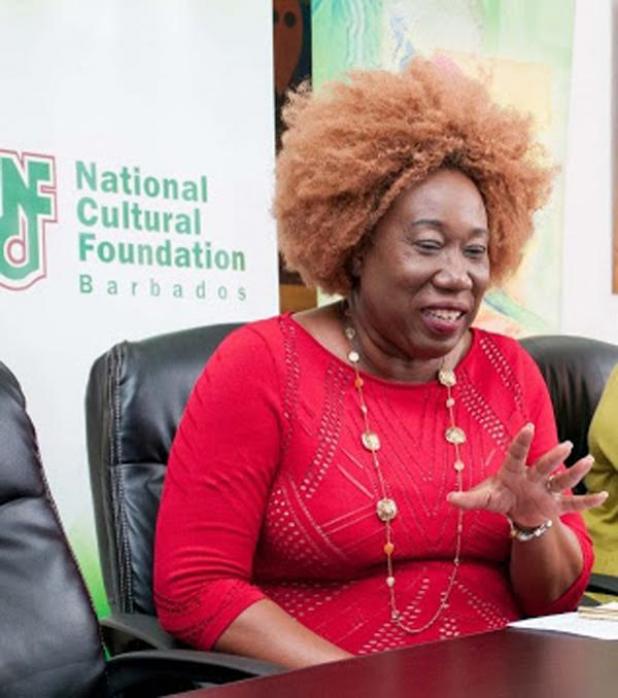
Carol Roberts-Reifer, Chief Executive Officer of the National Cultural Foundation (NCF).
NCF has high hopes for National Training Programme
The National Cultural Foundation (NCF) has high hopes for its proposed
National Training Programme, which will help Barbadians obtain the
skills they need to be successful in the cultural and creative
industries.
Carol Roberts-Reifer, Chief Executive Officer of the NCF, noted that
though the Cabinet of Barbados took a decision to cancel the highly
anticipated Crop Over Festival this year due to the COVID-19 pandemic,
work has been ongoing to see what other offerings the NCF can still
provide, and the training programme is one of them.
Her comments came yesterday as she spoke during the Inter-American
Development Bank’s (IDB) online Zoom webinar held under the theme,
“The Pivot Series: The Future of Festivals”. Various stakeholders from
across the region discussed the future of festivals in the Caribbean
and how countries can pivot and adapt to the changing world, given
that the COVID-19 pandemic has caused several 2020 Caribbean festivals
to be cancelled.
“We have started already on providing training via a digital platform,
across several disciplines, in the arts and culture, including some
disciplines that we would not have brought totally under our umbrella
in the past, including things like gaming and animation. We are really
trying to invest heavily in that, but also using training in the arts
and culture across all areas of education and training endeavours,”
Roberts-Reifer revealed.
“So using the arts and culture to teach civics, to teach citizenship,
to teach science, to teach mathematics and we are in the process of
rolling out content for our Ministry of Education for students who
will be sitting CAPE at CXC. When I say in the process, we have
already started delivering some content to the Ministry. But we are
also very keen on providing training and once again reimagining
training; yes towards certification, but also just towards an
enhancement of training and knowledge, in what I call some lost
traditions and some lost arts,” the NCF head added.
“Just yesterday I was speaking with one of my cultural officers and he
has a proposal to teach the art of stained glass creation. We used to
have a very, very vibrant pottery industry in Barbados and we have
been talking to some artists towards reviving that. But not just
providing training where you can say ‘Yes I can do this’, but through
our Business Development Department and our Ministry saying, ‘Yes, I
now have this skill, how can I monetize it, because I’ve got mouths to
feed’,” she further noted.
“That has been uppermost in the minds of everyone at the Foundation
and at our Ministry.
“My Minister is very, very adamant that there must be a meaningful
link between heritage, culture and the creative economy and so the
training programme is going to one, fill those gaps, provide the
skills across a very broad spectrum, leading us to be able to say look
at this person, look at that person, look at the skill, do you want to
buy it?” Roberts-Reifer pointed out.
(RSM)
